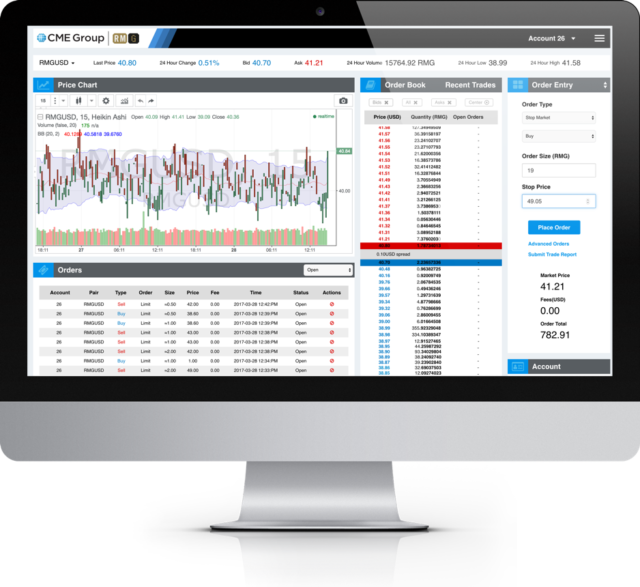Britain’s Royal Mint and Chicago-based CME Group, a derivatives marketplace, have now entered testing of their gold trading platform based on blockchain technology, ahead of its planned launch later this year. Bitcoin startup BitGo is notably playing the part of a developer alongside blockchain firm AlphaPoint in helping the CME Group to develop the open-source blockchain. The startup’s multi-signature technology, used for its bitcoin wallets, will be the core security technology used for the blockchain trading platform.
“Distributed ledger technology is a game changer and supplying gold on a blockchain has been something The Royal Mint has wanted to develop for some time,” stated Vin Wijeratne, CFO of the Royal Mint, which produces Britain’s coins.
Announced Tuesday by the CME Group, the new platform is in live testing among major financial institutions and will enable trading of RMG (Royal Mint Gold), a digital token issued by the British Royal Mint.
The Royal Mint, owned by Her Majesty’s Treasury, first revealed plans toward a ‘digitized gold offering’ in November 2016 and revealed that up to $1 billion in RMG gold would be launched with the blockchain platform.
“An RMG is a digital representation of real gold sitting in the Royal Mint vaults,” explains Sandra Ro, head of digitization at CME Group.
$1 billion in gold bars, or about two tons at current prices, will be stored in the Royal Mint’s vaults near Cardiff in Wales. A single RMG token will be equivalent to a gram of gold stored in these vaults.
Ro added:
This is the first digital gold product that is institutionally targeted – and the first to work with a government entity – to be currently in a live testing state.
Open Source Blockchain Code based on Bitcoin
The blockchain platform for trading digital gold, developed by BitGo and AlphaPoint, is notably implementing open source code in a private permissioned network.
“We are open source elements of it but we don’t want to give the illusion that it si an open network. It’s not initially,” Ro added, confirming the release of the open source code ahead of the launch. Bitcoin startup BitGo has been working as a blockchain consultant and developer with the CME Group to ‘develop the architecture, rules and parameters of the blockchain.’ The open source code can be found for assessment and testing here.
Ro added:
It’s a permissioned private network, and we’re going to be allowing for some of the source code – which is based on Bitcoin anyway and which is already open source – to be enhanced and modified.
Multi-Signature Security
Nearly three years ago to the day, CCN reported on bitcoin startup BitGo’s newest development, a multi-signature bitcoin wallet. Now among the largest bitcoin wallet providers around, BitGo’s multi-signature technology will be at the core of securing the RMG blockchain platform.
In this scenario, BitGo CEO Mike Belshe sees an additional private key held by a trusted party, like a bank or a lawyer, to enable additional security to digital assets based on public key infrastructure.
“When you want to make a transaction, you sign with your own key and then you hand it to the other guy on a completely different system and get them to sign it too,” Belshe explained. “This has turned out to be quite effective and is generally regarded by security experts as the safest way to deal with digital assets.”
The blockchain platform, which will enable investors to trade RMG through digital wallets, will also allow for delivery of physical gold. For storage, digital gold can be converted to physical gold by The Royal Mint should the investors choose to do so, with no storage fees levied as an added incentive.
The blockchain-based RMG trading platform is expected to be launched sometime in mid-2016 and will be operational 24 hours a day, every day, all year long.
Featured image from Shutterstock.















